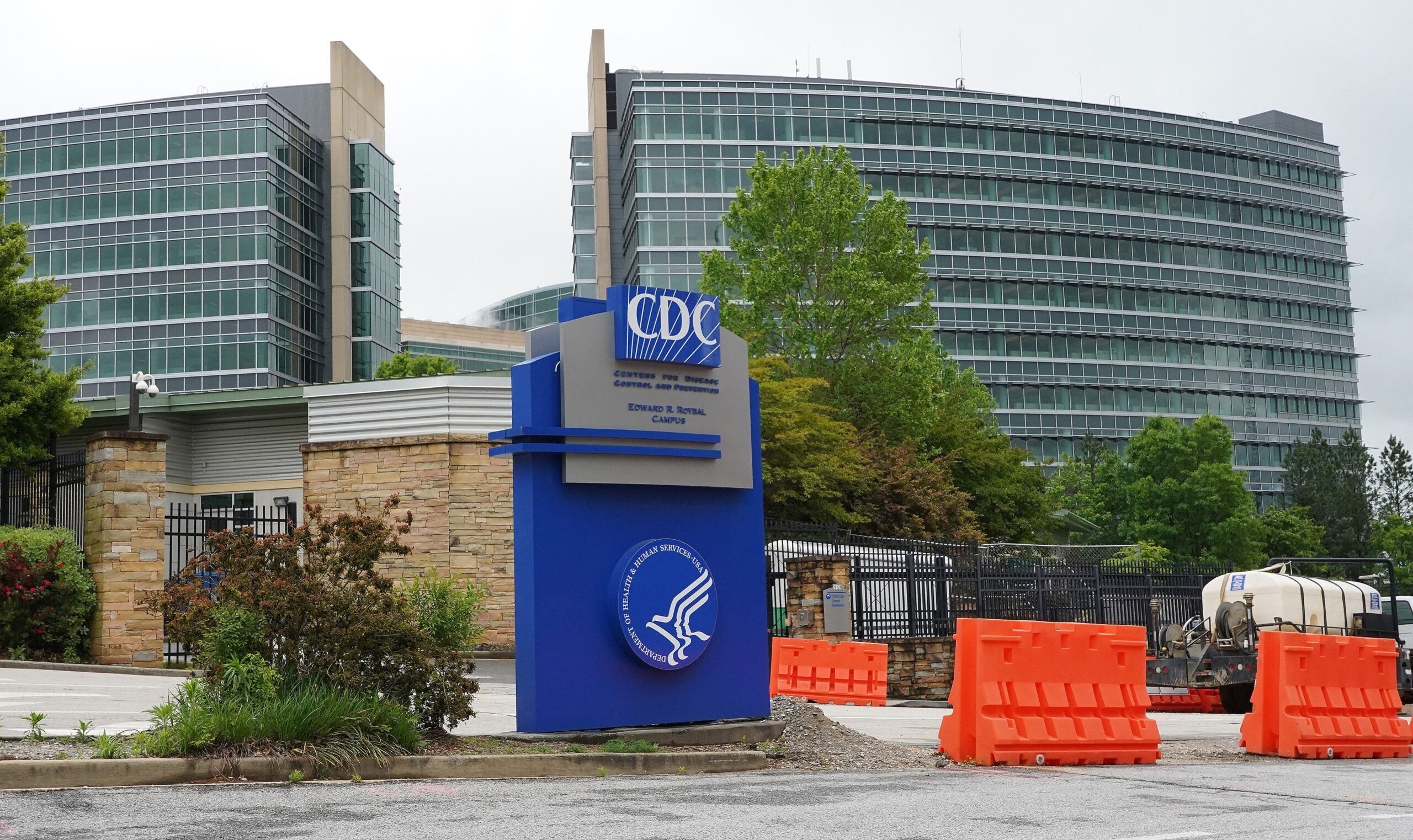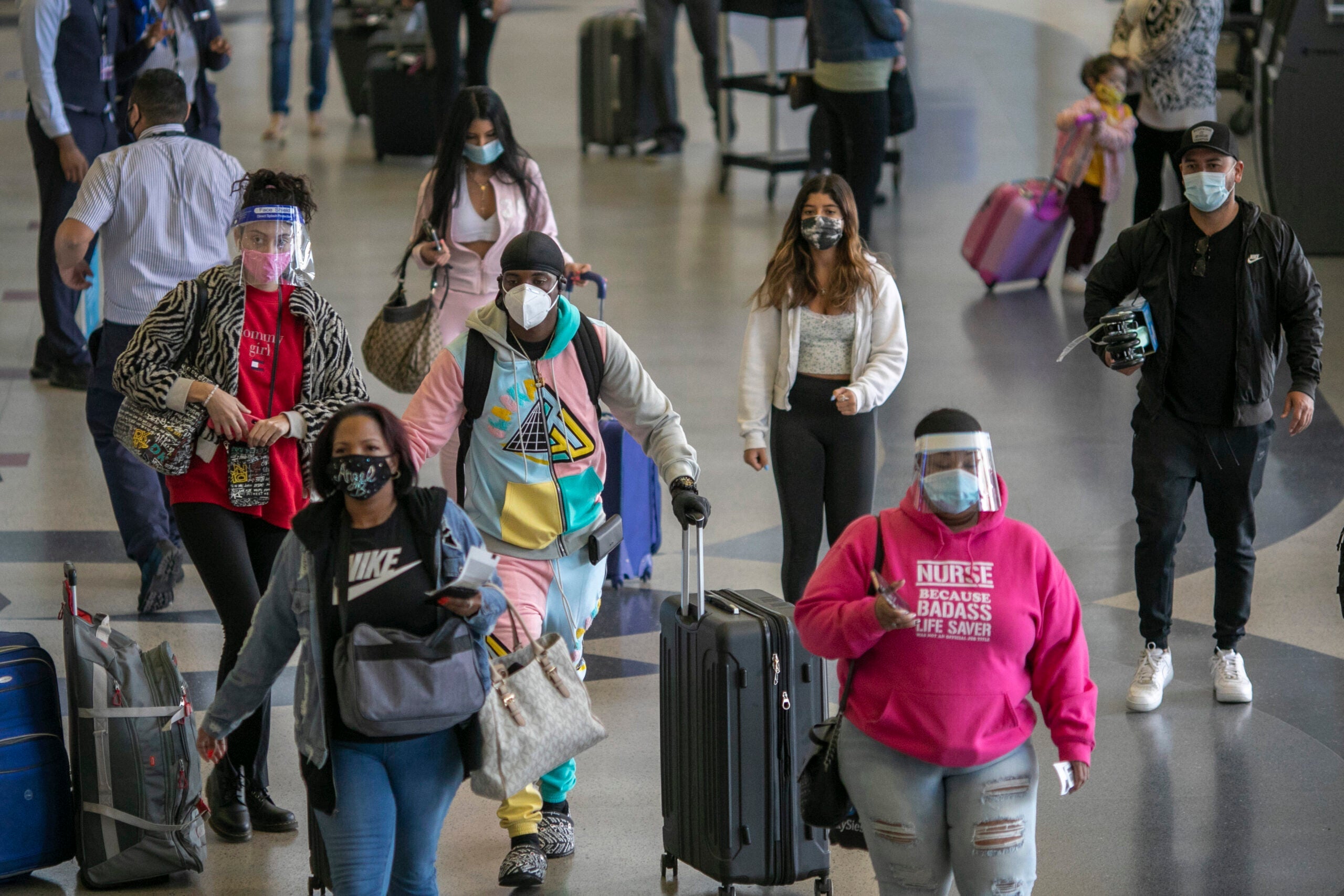White House says fully vaccinated can now travel, updates other guidance
The White House on Friday announced that fully vaccinated Americans can travel at "low-risk" to themselves.
The U.S. Centers of Disease Control and Prevention (CDC) says a person is fully vaccinated two weeks after receiving the last recommended dose of vaccine. The CDC also says:
- Fully vaccinated people can travel internationally without getting a COVID-19 test before travel unless it is required by the international destination.
- Fully vaccinated people do not need to self-quarantine after returning to the United States, unless required by a state or local jurisdiction.
- Fully vaccinated people should still have a negative COVID-19 test result before they board a flight to the United States and get a COVID-19 test 3 to 5 days after returning from international travel.
- Fully vaccinated people should continue to take COVID-19 precautions while traveling internationally.
Prior to today, the CDC hadn't offered much guidance on what fully vaccinated Americans can do, other than an update from early March. In that update, the CDC said that fully vaccinated people could visit indoors with other fully vaccinated people (or with unvaccinated people who are low-risk for COVID-19), without wearing masks or social distancing. People who have been fully vaccinated can also avoid quarantine and testing if they've been exposed to COVID-19 but remain asymptomatic.
However, the CDC had not relaxed its travel restrictions -- until now.
"With millions of Americans getting vaccinated every day, it is important to update the public on the latest science about what fully vaccinated people can do safely, now including guidance on safe travel," said CDC Director Dr. Rochelle Walensky.
"We continue to encourage every American to get vaccinated as soon as it's their turn, so we can begin to safely take steps back to our everyday lives. Vaccines can help us return to the things we love about life, so we encourage every American to get vaccinated as soon as they have the opportunity."
This news comes amid changing rhetoric and guidelines from the U.S. Centers for Disease Control and Prevention (CDC).

Just this week, Walensky issued a stark warning on Monday, as she warned Americans to "please limit travel," saying that travel is helping to spread the coronavirus. And despite the new guidance, she again reiterated during Friday's briefing that the "CDC is not recommending travel at this time due to the rising number of cases."

President Joe Biden has also urged state officials to reinstate mask mandates to deal with the pandemic. The president said because of what he called reckless behavior, the virus was spreading again. Over 553,000 people have died of COVID-19 in the U.S., which remains the world's hardest-hit country.
While 16% of the U.S. population have been fully vaccinated against COVID-19, it's important to note that the U.S. is an outlier here. Many of the destinations most popular with American travelers, such as Mexico, still lag far behind. Mexico, for instance, has vaccinated just 0.75% of its citizens, according to a Johns Hopkins University tally.
The travel industry reacted positively to the news.
"The CDC's new travel guidance is a major step in the right direction that is supported by the science and will take the brakes off the industry that has been hardest hit by the fallout of COVID by far," Roger Dow, the president and CEO of U.S. Travel Association. "As travel comes back, U.S. jobs come back."
"The virus has always been the problem, threatening our lives and our jobs," said Sara Nelson, the president of the Association of Flight Attendants-CWA. "We are thrilled with the CDC's announcement that vaccinated people can travel. We need to make sure flight attendants and other transportation workers have priority access to the vaccine."
The increase in positive cases comes amidst a surge in air travel.
The TSA has screened more than a million people every day since March 11. To give you an idea of how that compares to last year when travel ground to a halt, the agency on March 28, 2020, screened just 180,002 people.
Featured photo by David McNew/Getty Images.
TPG featured card
at Capital One's secure site
Terms & restrictions apply. See rates & fees.
| 5X miles | Earn 5X miles on hotels, vacation rentals and rental cars booked through Capital One Travel |
| 2X miles | Earn unlimited 2X miles on every purchase, every day |
Pros
- Stellar welcome offer of 75,000 miles after spending $4,000 on purchases in the first three months from account opening. Plus, a $250 Capital One Travel credit to use in your first cardholder year upon account opening.
- You'll earn 2 miles per dollar on every purchase, which means you won't have to worry about memorizing bonus categories
- Rewards are versatile and can be redeemed for a statement credit or transferred to Capital One’s transfer partners
Cons
- Highest bonus-earning categories only on travel booked via Capital One Travel
- LIMITED-TIME OFFER: Enjoy $250 to use on Capital One Travel in your first cardholder year, plus earn 75,000 bonus miles once you spend $4,000 on purchases within the first 3 months from account opening - that’s equal to $1,000 in travel
- Earn unlimited 2X miles on every purchase, every day
- Earn 5X miles on hotels, vacation rentals and rental cars booked through Capital One Travel
- Miles won't expire for the life of the account and there's no limit to how many you can earn
- Receive up to a $120 credit for Global Entry or TSA PreCheck®
- Use your miles to get reimbursed for any travel purchase—or redeem by booking a trip through Capital One Travel
- Enjoy a $50 experience credit and other premium benefits with every hotel and vacation rental booked from the Lifestyle Collection
- Transfer your miles to your choice of 15+ travel loyalty programs
- Top rated mobile app


